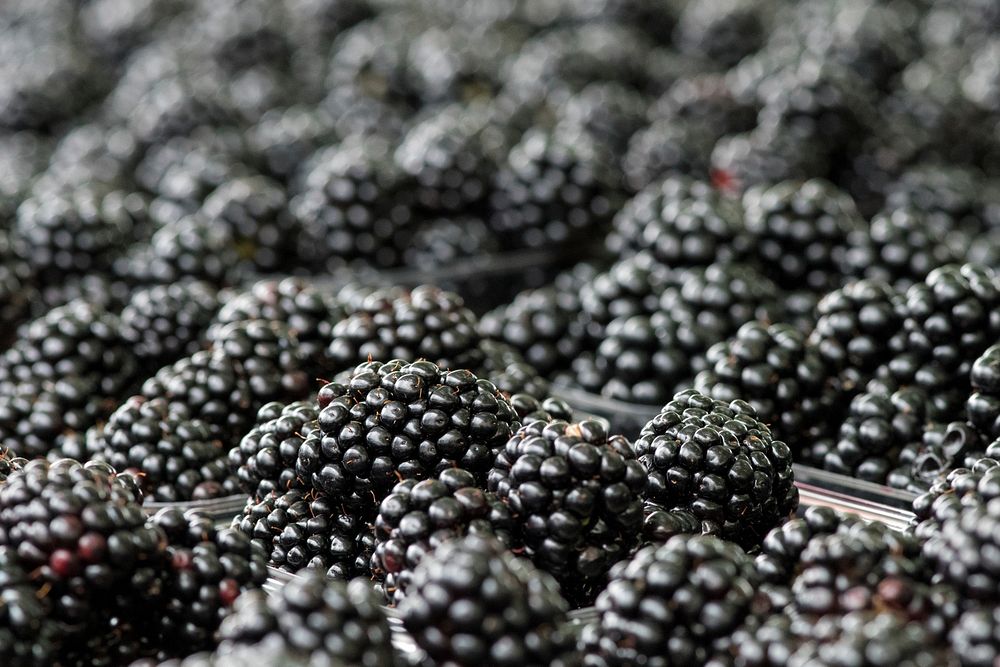
Blackberries at the U.S. Department of Agriculture (USDA) Farmers Market in Washington, D.C., on August 6, 2018.
Blackberries at the U.S. Department of Agriculture (USDA) Farmers Market in Washington, D.C., on August 6, 2018.
Today’s featured produce is watermelon. National and State Watermelon Queens are here to help people learn about watermelon and taste their samples of red, orange and yellow varieties. The watermelon association queens are represented by 2018 National Watermelon Queen Savannah Lee Christensen (orange jumpsuit), along with state-level queens Gabrielle Hastings for Mar-Del (Maryland-Delaware, yellow blouse), Savannah Hartley (black dress) for Georgia, Emily Rice Dicks (fuchsia dress) for South Carolina, and Camri Campbell (striped dress) for Florida. Seed spitting contests allowed people to try besting the 21-foot distance set by one of the queens. Watermelon eating contests demonstrated how fast some people can enjoy the watery fruit. Many of the featured fruit activities were held at the USDA Farmers Market's VegU educational tent; the ‘VegU' tent allows ‘VegUcators’ to provide tasting samples of the featured produce. The goal is to increase fruits and vegetables in meals and help the customers understand what is in season.
Today’s producers are local farms, and vendors include locally sourced ingredients. Live music was provided by “emma G” for shoppers enjoying their meals and resting at shaded table seating areas in the market and the nearby garden. The garden allowed visitors to see bees, bumble bees, and monarch butterflies busy harvesting nectar and pollen from pollinator garden plots. USDA Photo by Lance Cheung.
www.usda.gov
@USDA_AMS
#USDAFarmersMkt
www.usda.gov/farmersmarket
Watermelon:
• The Cucurbitaceae is an important food plant family and includes
cucumber, gherkins, melons, gourds, marrows, squashes, and
pumpkins. The fruit, which is botanically called a ‘pepo’ is used as a
vegetable or dessert, but other parts of the plant (young leaves,
shoots, seeds, and root) may also be consumed as food. The fruit
contains a large amount of water and a reasonable amount of
vitamin C. Cucurbits are usually climbing plants.
• The classification of melons (Cucumis melo) is based on fruit
characteristics (surface and flesh) but, because of hybridization, it is
not always easy to distinguish between the groups. There are three
main cultivar groups of melon: (1) musk melons are distinctly
netted, with a raised network on the surface of the skin generally
lighter than the overall color of the fruit such as ‘Galia’ melons; (2)
cantaloupe melons have a warty or scaly skin but are not netted; (3)
winter melons are either smooth or shallowly corrugated but not
netted like the popular ‘Honey Dew’ melons.
• The scientific name for watermelon is Citrullus lanatus.
. Original public domain image from Flickr